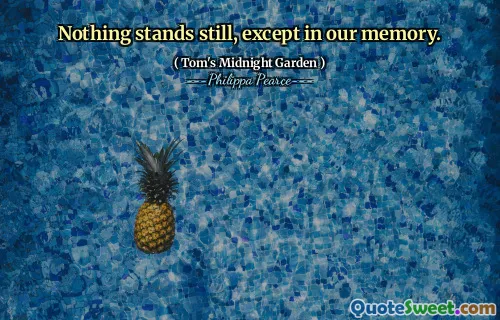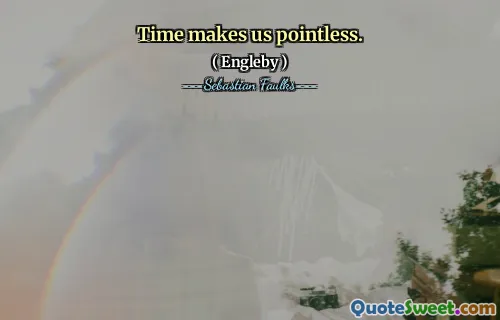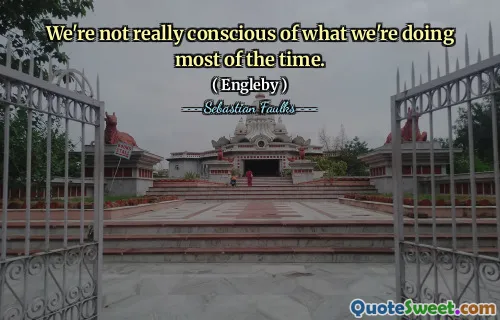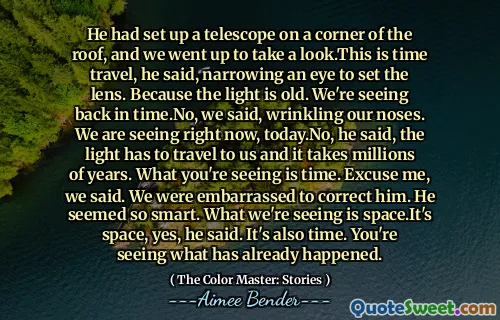Time folds you in its arms and gives you one last kiss, and then it flattens you out and folds you up and tucks you away until it's time for you to become someone else's past time, and then time folds again.
In Margaret Atwood's "The Tent," the author explores the concept of time as a nurturing yet ultimately flattening force. Time is portrayed as an entity that envelops individuals, offering comfort and a sense of finality before it eventually compresses their experiences into memories. The imagery of being folded and tucked away suggests a cyclical nature where our past becomes a part of someone else's experience.
This contemplation of time emphasizes the transient nature of existence, where moments are cherished only to be ultimately relegated to the past. Atwood's narrative invites readers to reflect on their own relationship with time, highlighting how our lives intertwine with the memories and lives of others, as time continues to fold and unfold its narrative tapestry.





